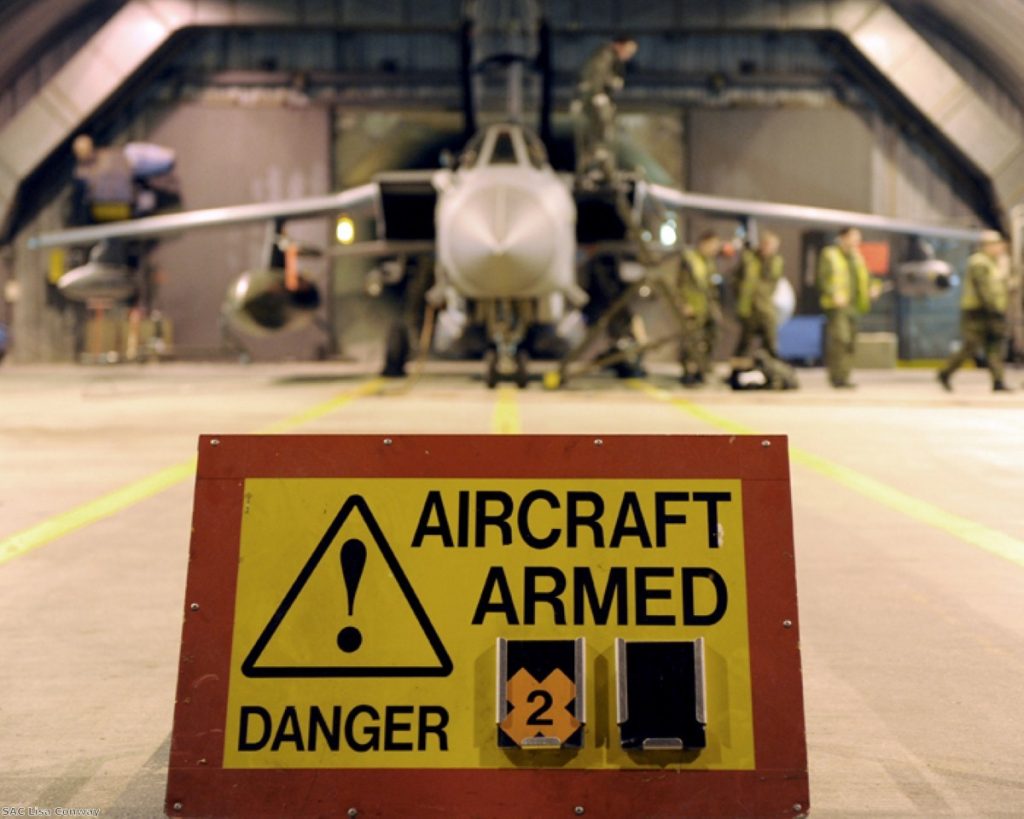‘No time pressure’ on Libya mission
By Phil ScullionFollow @PhilScullion
The head of the Royal Navy has advised the prime minister that the UK can sustain its mission in Libya for "as long as we need to".
Admiral Mark Stanhope, first sea lord, had earlier in the week warned that "challenging decisions" would need to be made if the mission continued for another six months.
David Cameron offered a robust rebuttal in prime minister’s questions, however. He said he and the first sea lord had agreed that "time is on our side".


Labour MP Mike Gapes raised the issue with a stumbling question to the prime minister in which he appeared to forget the first sea lord's name.
He recovered from his error to say: "Admiral Mark Stanhope has said that the operations in Libya cannot be sustained for longer than three months without serious cuts elsewhere.
"Given those problems is it not time that the prime minister reopened the defence review and did yet another U-turn on his failed policies?"
Mr Cameron responded by poking fun at Mr Gapes' earlier mistake, before calling for a positive message to be sent out from the House of Commons.
"We have Nato, the United Nations and the Arab League. We have right on our side. The pressure is building militarily, diplomatically and politically, and time is running out for Gaddafi," he said.
Nato's mission to protect Libyan civilians using a no-fly zone has been in operation since March following colonel Muammar Gaddafi's brutal response to an uprising.
Moving on to calls for another defence review, Mr Cameron added: "I would simply say that for ten years the Labour party did not have a defence review, but now it wants two in a row.
"We have the fourth highest defence budget of any country in the world. We have superb armed forces who are superbly equipped "
The strategic defence and security review was published five months prior to the military operation in Libya, and set out an eight per cent cut to defence spending over the next four years.












